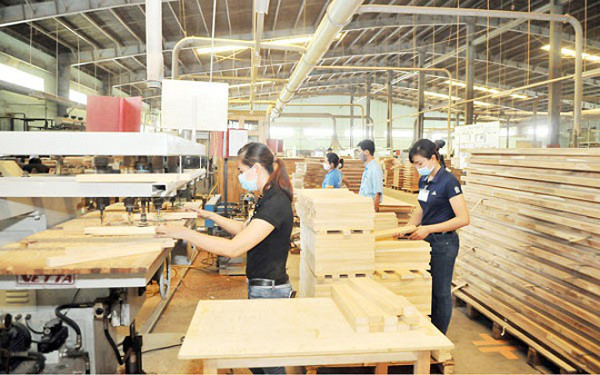The US Department of Commerce (DOC) has started an investigation into made-in-Vietnam wooden cabinets, including kitchen and bathroom cabinets, that used Chinese parts that fell under the US's tariff regime, said a source from the Ministry of Industry and Trade.

The US Department of Commerce (DOC) has started an investigation into made-in-Viet Nam wooden cabinets, including kitchen and bathroom cabinets, that used Chinese parts that fell under the US tariff regime, said a source from the Ministry of Industry and Trade.
The DOC decision was made in accordance with the US's imposed anti-dumping and anti-subsidy duties on products originating from China.
According to preliminary data from the United States International Trade Commission, in 2021, the export value of Viet Nam's products subject to investigation to the United States will reach about US$2.7 billion.
The case against Viet Nam's products was brought forth by the American Kitchen Cabinet Alliance, which represents several US wood cabinet manufacturers. The alliance has asked the DOC to extend anti-dumping and anti-subsidy duties to wooden cabinets assembled in Viet Nam and exported to the US.
If the DOC decides not to expand the scope ruling, the plaintiff requests an investigation against trade remedy duty evasion concerning wooden cabinets imported from the Southeast Asian country.
Once a case is initiated, the DOC is expected to draw a conclusion in 120 days, possibly adding 180 days if further investigation is required.
To help businesses producing/exporting wooden cabinets in Viet Nam under investigation, the Trade Remedies Department under the ministry recommends that stakeholders actively review their export activities and research the regulations, orders, and procedures for trade remedy duty evasion investigation conducted by the United States.
The ministry advised Vietnamese firms to actively cooperate, ensure close coordination with the investigating agency throughout the case process to receive timely support, and ensure legitimate rights and interests of the businesses during the investigation. — VNS





